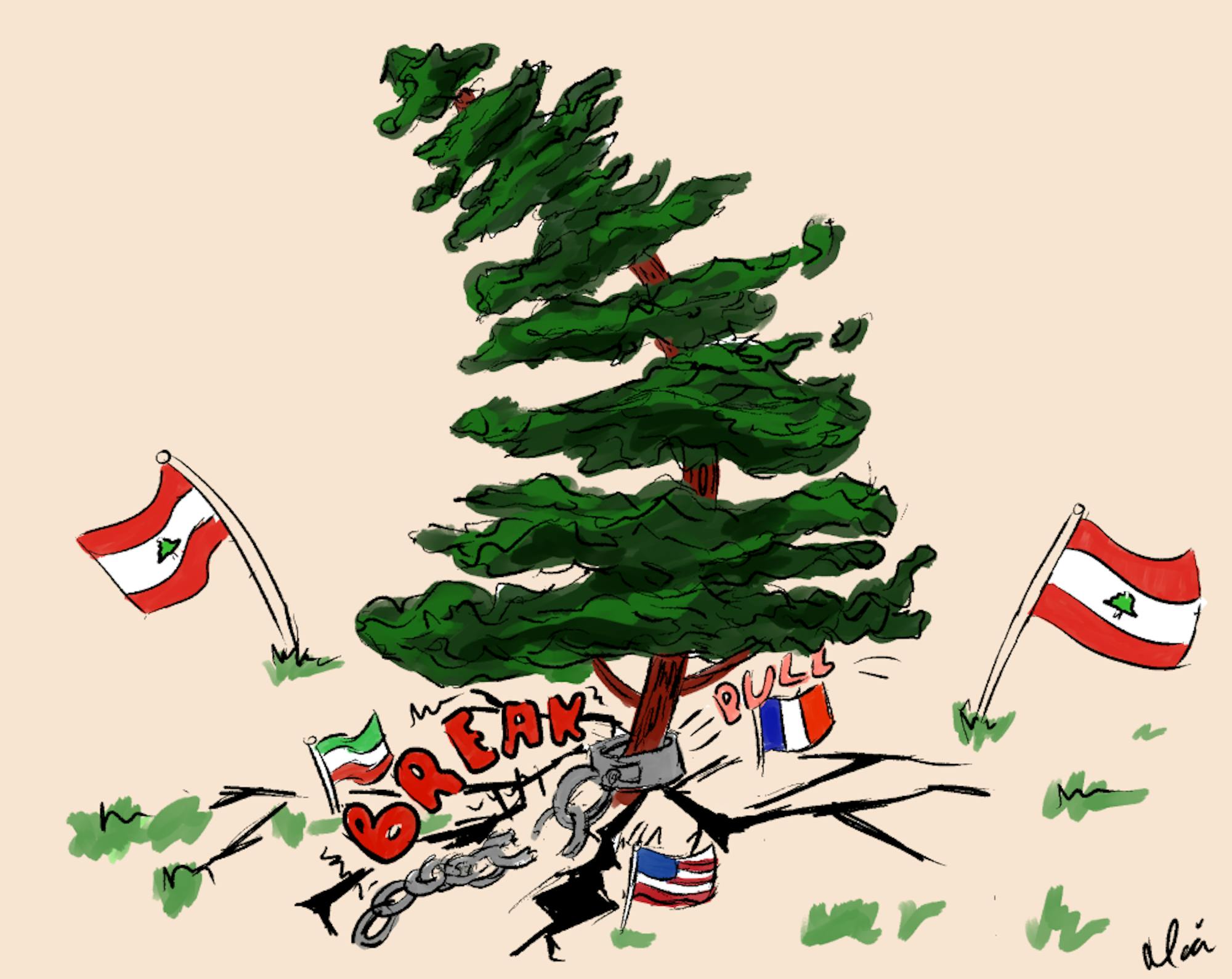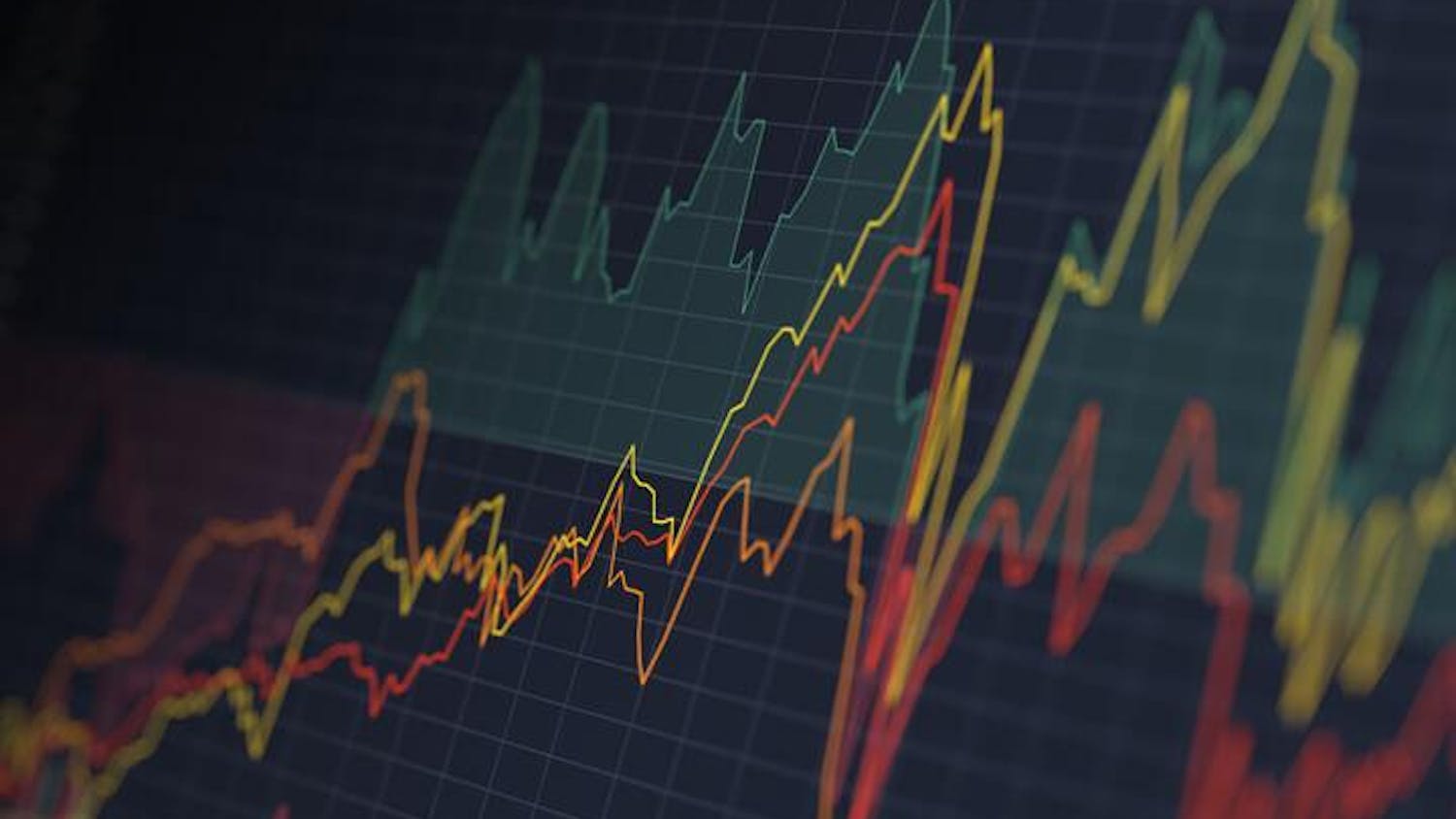Joy, disbelief, indifference or skepticism. These were the reactions of many Lebanese individuals to their home country's recent news. After thirteen months of an inactive caretaker government, Lebanon finally has a new government. Following a year of depressing news headlines and worsening domestic issues, it may be the last chance for my country to set things right.
Once dubbed the “Switzerland of the Middle East,” Lebanon now faces an unprecedented economic crisis that has left over 70% of the population living under the poverty threshold. After years of massive public indebtedness, Lebanon defaulted on its debt for the first time in March 2020. Soon, dramatic inflation destroyed the value of the national currency against the U.S. dollar. While the official rate remains at its pre-crisis level, an entire black market has developed, sending the price of goods to astronomical levels and threatening the lives of millions.
The tragic Beirut port explosion in August 2020 wiped out a sizable portion of the capital city, exacerbating the economic crisis. The government resigned and took up a caretaker role, refraining from enacting any reform to salvage the situation until a new government was put into place. Aid and debt restructuring talks with the International Monetary Fund collapsed. Inflation accelerated, sustaining a swift decrease in purchasing power. Essentials including medicine and gasoline were now in short supply, fueling a vicious cycle of economic degradation. People were waiting hours in line to fill up their tanks, unable to reach their schools and workplaces.
Lebanon is prey to a myriad of foreign influences. Several global powers maintain assets on the Lebanese political scene, making my country fertile ground for proxy wars. Iran-backed Shiite Muslim political party and militant group Hezbollah is the kingmaker: nothing happens without their approval. Officially allies with the president, they have supported his quest for more power and in return have expected greater influence.
The West has staunchly opposed Iranian hegemony in the strategically situated country. Both sides are locked in a permanent war of words and influence, with Hezbollah accusing its opponents of being sponsored by the “embassy,” a euphemism for the American embassy in Awkar. Indeed, French President Emmanuel Macron has made Lebanon one of his foreign policy priorities. He was the first leader to visit after the port blast and earned widespread praise from the Lebanese. That praise gave France, and by extension its American ally, a great deal of leverage, establishing a counterweight of sorts to Hezbollah. Macron organized a meeting in the French embassy to agree on a unified list of priorities for the next government to tackle,as well as the format of said government.
But deadlock persisted, all while the economic situation unraveled at break-neck speed. A sectarian rivalry exists among Lebanon’s leaders. Eighteen sects vie for influence in the country; they’re constantly at each other’s throats, trying to accumulate as much power as possible. The caretaker government had been chosen, in large part, by President Michel Aoun’s party. The public would not tolerate such Aoun’s continued leadership after the explosion. Two prime ministers were successively designated to form the next government. Both failed. President Aoun played an unusually hands-on role in choosing the government, loosely interpreting the constitution to claim new executive powers. After the second prime minister-designate, veteran politician Saad Hariri resigned, the Lebanese pound plummeted. People predicted the deadlock would last well into 2022, at least until the parliamentary elections.
And then, a coup de théâtre. Two months after his designation, unusual swiftness by Lebanese standards, another veteran politician, Najib Mikati, successfully got the president to sign off on his cabinet. Parliament promptly gave him a vote of confidence, arming Lebanon with its first fully operational government in more than a year.
In the States, Lebanon is no mainstream discussion topic. The Starbucks barista preparing my coffee in Davis Square had no idea where the country lies. I had to describe our geographical location in relation to better-known countries, like Turkey. There is duality in the way the outside interacts with Lebanon. While external governments may care about this tiny nation, many people in the West do not.
Here at Tufts, a quick search for Lebanon in the courses offered yields multiple courses on the broader Middle East.Most of them are culture courses and one is a history course with a focus on Lebanon that unfortunately ends at WWI. “U.S. Foreign Policy in the Middle East” is a promising title, but the United States’ definition of the Middle East includes more than 20 countries. In a school renowned for its international relations and political science programs that feed the State Department’s diplomatic ranks (the vice-consul that processed my visa application was a Tufts alumnus himself), it is only normal to expect more attention toward Lebanon.
Lebanon’s history and political system are complex enough to warrant a much deeper focus on the academic front. It could be an example in the management of delicate foreign policy matters and act as a very potent case study for future diplomats. The university should offer a course specifically centered on the modern politics of the Levant — a geographic area much narrower than the Middle East nomenclature — which would help to increase interest in the region and raise awareness regarding the country’s turmoil. Offering country-specific courses in relation to the Middle East could also enable students to pursue personal interests more thoroughly and perhaps orient their future diplomatic postings.
My country’s politics are some of the most porous in the world and Western countries have a responsibility to act responsibly and effectively if they want to continue interfering and supporting their local allies. Tufts can do its part to raise awareness of the situation in my country. We must make certain that former administrations’ mistakes in my region of the world are not repeated, while also ensuring that the cultures and backgrounds of Middle Eastern students earn well-deserved recognition and appreciation. Lebanon, like many other nations in the Middle East, merits greater attention and exposure.






